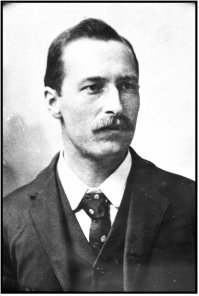Arthur Puttee

Arthur W. Puttee (August 25, 1868 – October 21, 1957) was a British-Canadian printer and politician. Puttee was the first
Puttee was a printer by training. Born in
When Winnipeg's
Puttee's campaign benefitted from a serious division in the local Liberal ranks. Martin had been nominated by a minority faction in the party rebelling against
Puttee ran on a platform promoting public ownership of "all natural monopolies" and other reformist measures. The basic issue of the campaign was whether labour had a right to have its own representatives in parliament.
In a narrow two-way contest, Puttee prevailed by a margin of eight votes (2431 to 2423). Puttee ran for re-election later that year in the 1900 election and won by a margin of 1,200 votes. Puttee again received unofficial Liberal support against Martin, who ran as an independent with Conservative support.
Puttee remained in Parliament until the 1904 election, when he was defeated. There were several reasons for this setback.
As an MP, Puttee came into contact with
A second reason for Puttee's defeat was the loss of Liberal support, as the Sifton loyalists succeeded in nominating their candidate, D. W. Bole. The
The Liberals made strenuous efforts to appeal to the working class through the dispensation of patronage among leading trade unionists, and by attacking the trade union council as being radical and uninterested in the needs of ordinary workers. Puttee was painted as a dangerous "revolutionist" backed by "assassins". Bole won the election; Puttee finished in third place.
Out of office, Puttee returned to his newspaper and continued to agitate for independent working-class politics. He became chairman of a new party, the
In 1910, Puttee endorsed
Ultimately, Puttee's conservatism sidelined him as the labour movement came under the influence of
By the time of the
Puttee ran for the Manitoba legislature in the
Already in his 50s, he did not play a significant role in politics after 1922.
References
- ISBN 0802084273. "The Trades and Labour Council endorsed the socialist Voice, edited by Arthur W. Puttee, which had been publishing since 1894 The Voice was one of the best Left newspapers ever published in this country and the contacts of its editor ..."
